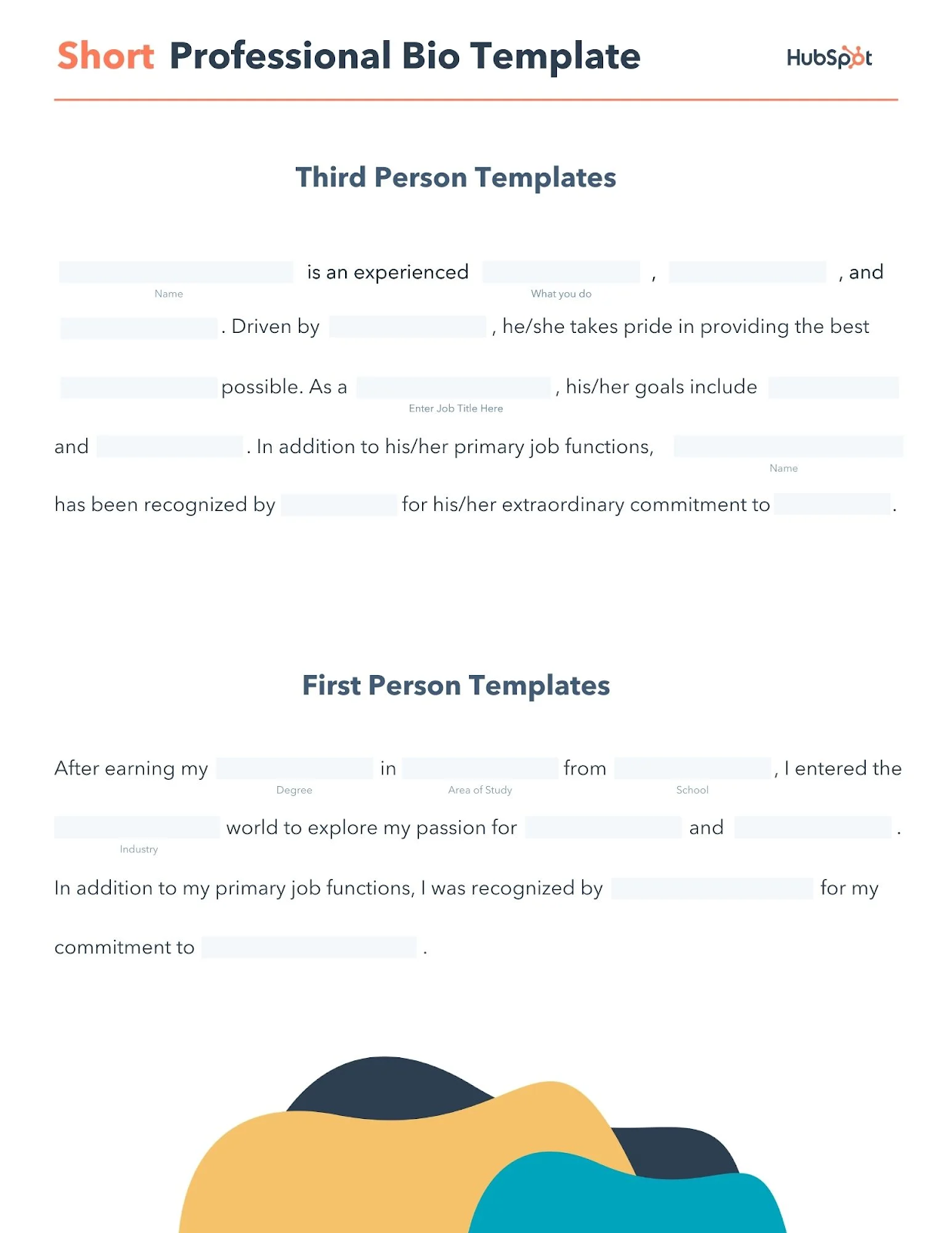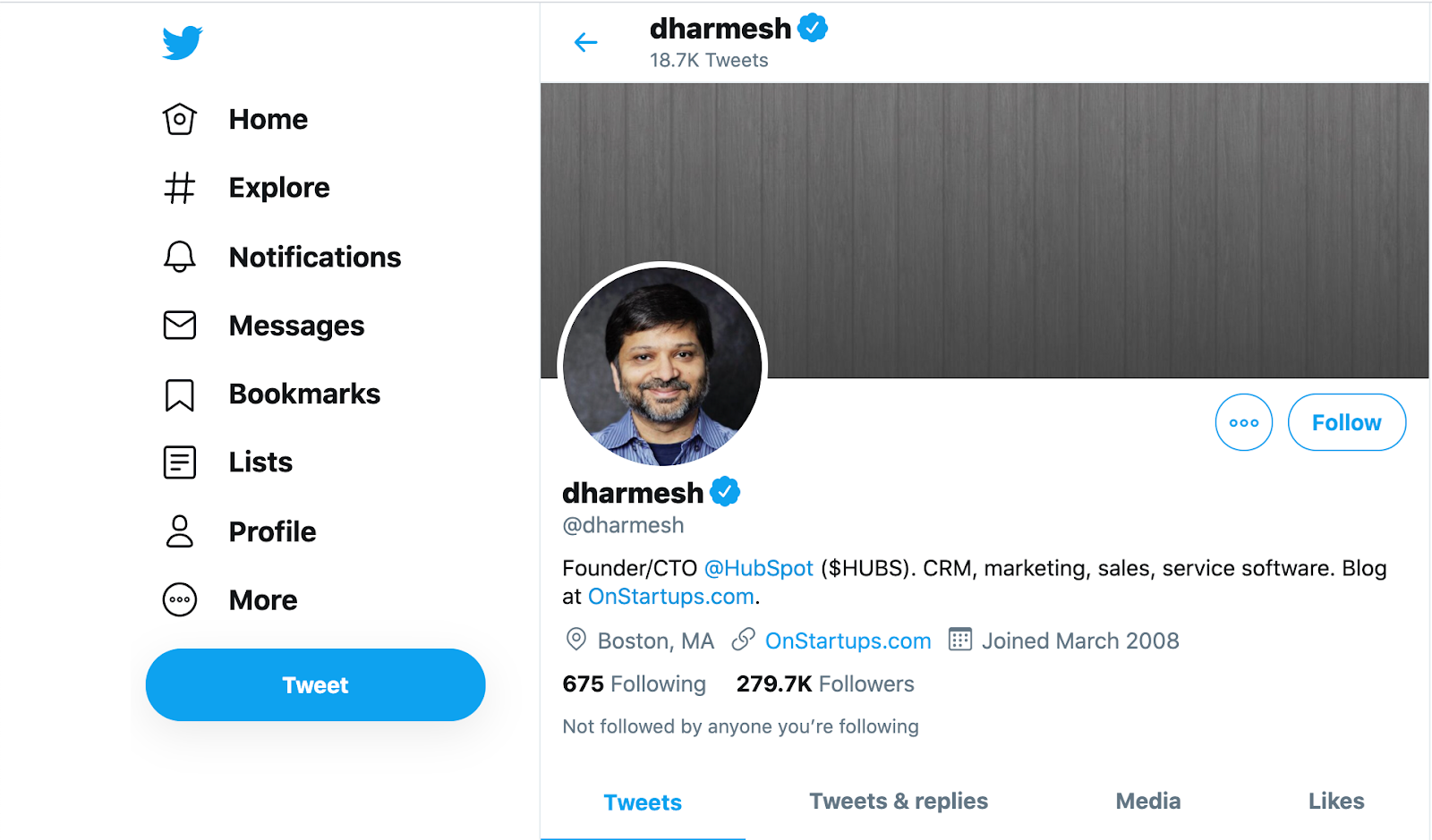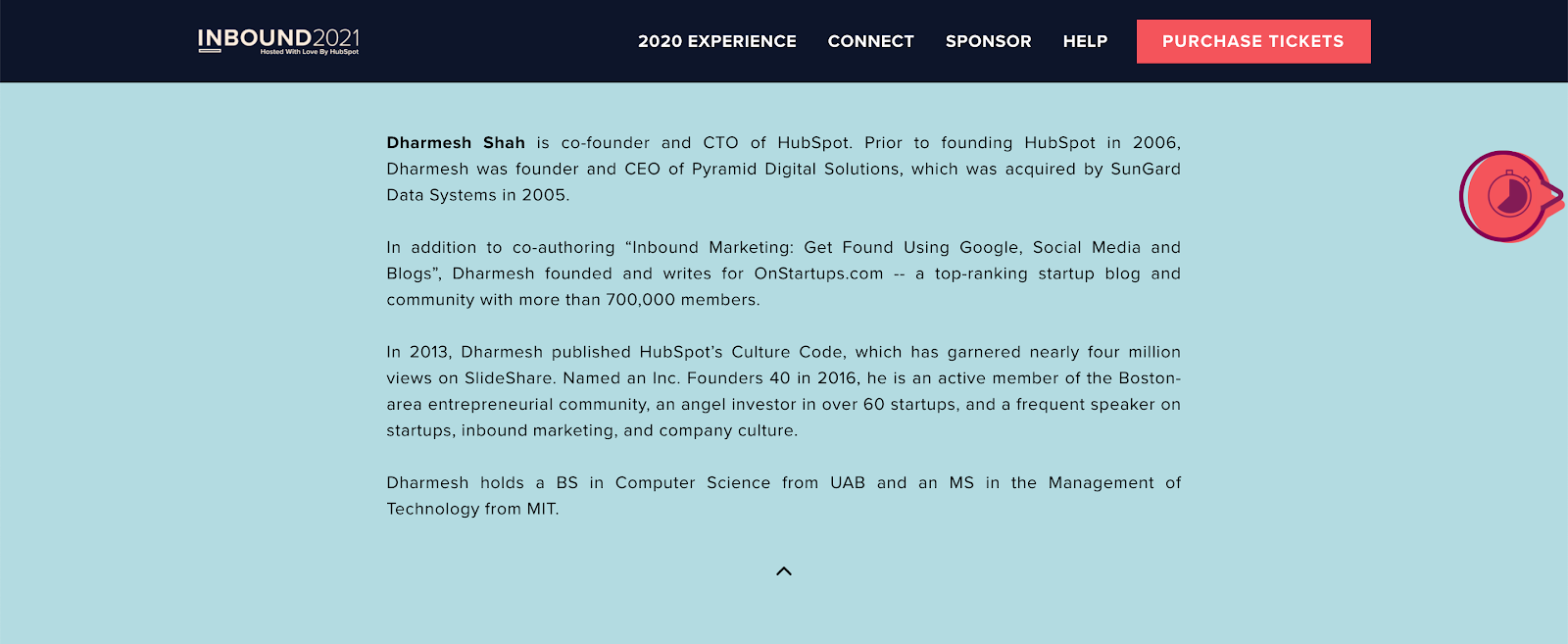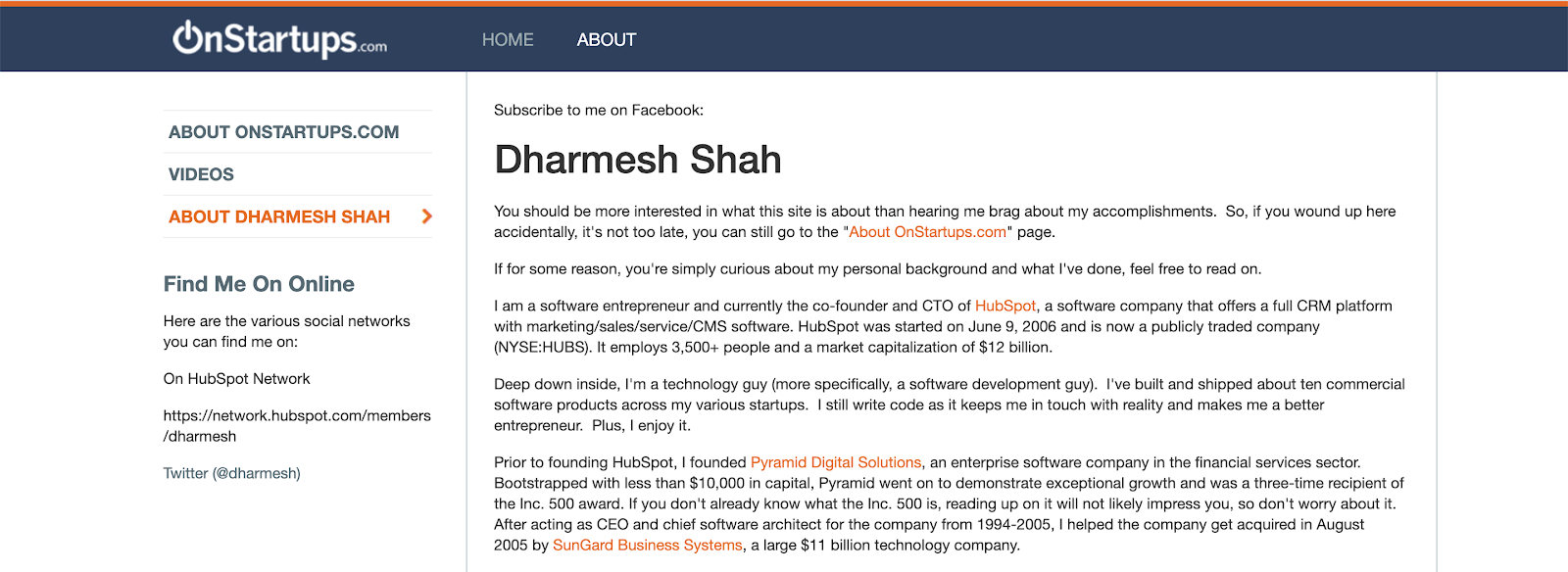A great way to share more about your background is to have a prepared document, like a professional bio.
A professional bio can be shared with prospective employers, your colleagues, included in your social media profiles, used for speaking engagement announcements, or used as an author bio on a blog.
Writing about your professional background for the first time may feel challenging or awkward, but it doesn't have to be.
Here, we'll explore some tips to help you feel more comfortable when writing your own professional bio. Let's dive in.
What is a professional background?
A professional background is a summary of your professional experiences —coupled with any relevant personal information, including interests or passions — that you'll use throughout your career as you network with industry peers, apply for new roles, or seek out thought leadership opportunities.
This includes previous jobs you've had, successful projects you've worked on, significant accomplishments like promotions or awards, professional networking organizations you belong to, and anything else you'd share with someone who wants to know more about you professionally.
Not only is sharing more about your background a great way to tell more about yourself to others, it's also an opportunity to wholly reflect on your professional journey and the goals you've achieved — plus, what you hope to achieve in the future.
Next, let's dive into how you can get started.
How to Write About Yourself
1. Don't start from scratch.
If you're having trouble figuring out where to start, try using a professional bio template to guide you. Templates, like the ones featured below, make it easier for you to focus on your personal information and accomplishments, without having to worry as much about the structure.
Featured Resource: Professional Bio Templates and Examples

2. Know your audience.
Take into consideration who will be reading your professional bio and cater to your reader.
You may also want to draft different versions of your document to best fit specific audiences. For example, the version you post on your LinkedIn may not be as detailed as the version you post on your personal website, and if your reader is a potential employer, it would help to include details that specifically highlight why you're the best candidate for the role for which you're applying.
HubSpot Founder Dharmesh Shah uses different bios for different platforms. On Twitter, for instance, Dharmesh's bio is short and sweet, which is perfect for Twitter's character limit.

Alternatively, on INBOUND's website, Dharmesh's bio is written in third-person for attendees. This bio makes Dharmesh's current role clear while providing some key background information.

Finally, in his OnStartups bio, Dharmesh's voice is personable since he's speaking directly to the reader. This gives readers more insight into Dharmesh's background directly from his perspective.

The best part about this approach is that you can create as many versions of your bio as you'd like, or simply recycle a general version whenever you need it.
3. Show professional progression.
As you're writing, think about structuring your professional bio in a way that creates a timeline to show your progression. Explain what your different roles were like, and emphasize responsibilities that set you up for success in your latter roles.
It's important to note that your timeline doesn't have to be linear.
"Look for a theme that runs throughout several of the jobs you've held, and present your choices in a way that shows common threads running through each of your career decisions," explains career strategist Jenny Foss.
The goal is to clearly show your audience the different roles you've had, and how all of your experiences have contributed to your overall professional development.
4. Highlight your accomplishments.
One of the best things about writing about your professional background is that it's the perfect opportunity to brag about yourself — and I don't mean humble brag.
Think of the most successful projects you've been part of, the strategies you've helped develop and execute, the deals you've closed, the revenue you've generated, and anything else that stands out as a major accomplishment.
"A former manager once told me to keep a 'brag sheet' in a document on my computer. The idea was to create a running list of noteworthy accomplishments, media mentions, awards, and letters of recommendation that I could reference to make it easier to write about myself. It also doesn't hurt to open up this document whenever you're having a tough day to remind yourself what you're capable of,” Carly Stec, HubSpot's Manager of Channel Monetization, told me.
It's also important to consider how success was measured in your previous roles — and how that might shape the way you write about it.
If success for you tends to be measured in quantifiable metrics include strong statistics, it might look something like this:
- "In my first six months I was able to sign up X amount of customers that generated an average monthly recurring revenue of $X."
- "I helped boost customer retention by X percentage."
- "With the strategy I developed my team was able to lower customer acquisition costs by X percentage."
If your role is primarily measured through qualitative goals, share a highlight that speaks to skills you excel at:
- "I successfully managed executing a major project with strong time management skills and excellent communication with several stakeholders."
- "I was able to complete a project that was projected to take an entire quarter in half the time because of my organizational skills."
- "I was selected to lead a database cleanup project due to my attention to detail and strong team collaboration skills."
5. Be personable.
Timelines and accomplishments are great, but being personable is even better.
Readers should feel like they're getting some sense of who you are from your professional bio. This gives readers the opportunity to know more about you beyond a professional scope. If you have any cool niche hobbies that you enjoy outside of work, this would be the time to share.
Here's a list of prompts to help you brainstorm the right "fun facts" to highlight:
- What TV show are you currently binging?
- Do you have any pets?
- What's something most people don't know about you?
- What languages do you speak?
- What are you most proud of yourself for?
- Share something you've done that bucket-list worthy
- What do you do to relax?
- What are three of your must have apps?
- What would your favorite colleague say about you?
- What's the best advice you've ever received and how do you apply it to your life?
Being personable is also a great opportunity to address any unconventional moments in your professional background. For example, maybe you've made a drastic shift in your career path, or you took a sabbatical at some point.
These types of stories can really help make you more relatable to your audience, and you never know who you may end up connecting with over one of your hobbies or more personal moments.
6. Ask for feedback.
Constructive feedback is key when you're writing about yourself. While many choose to source feedback after completing a draft of their bio, it's just as beneficial to get feedback from your peers at earlier stages of your drafting process.
Oftentimes, our peers can help identify our strengths and where we have opportunities to improve. If you're having trouble developing a clear timeline or pinpointing which highlights you should mention, get together with a peer to brainstorm ideas.
Reflect on successful assignments that you've collaborated on and ask your peer to provide honest feedback about what you did best — and include that feedback in your bio.
If you need help getting started, here's a list of discussion questions to use with your peers to uncover professional strengths you might be overlooking in your own self-assessment:
- What role do you think I tend to play in group work?
- How have I helped you be more successful?
- What do you think my most impressive project has been?
- What was your first impression of me?
- What do you think my strengths are?
Ready to start writing?
Keep these tips in mind as you're writing about your professional bio. Your final product should be a written statement that boasts your most notable skills and achievements. As you continue to progress in your career, take time to update your bio like you would your resume, and continue to impress your readers.
And remember, if you're feeling stuck, don't be afraid to leverage our free professional bio templates to help you get started.
How to Write About Your Professional Background was originally posted by Local Sign Company Irvine, Ca. https://goo.gl/4NmUQV https://goo.gl/bQ1zHR http://www.pearltrees.com/anaheimsigns
No comments:
Post a Comment